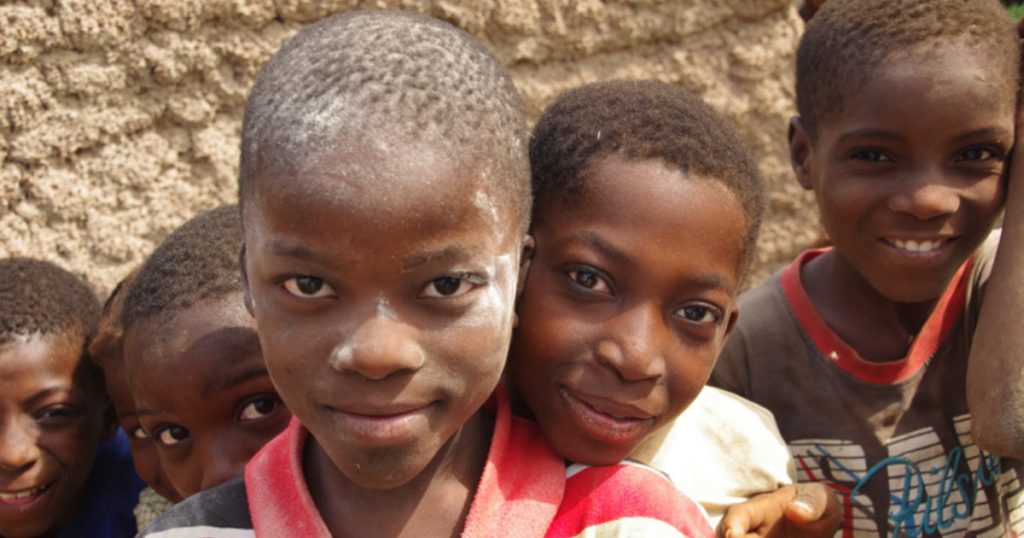
Life in the witch camps of Ghana
By AdministratorWhen you visit the Kukuo witch camp in the Northern Region of Ghana you will see numerous elderly and vulnerable women dwelling in the camp. They are exposed to several forms of gender discrimination and violation against their human rights and dignity. In my role as a Humanist Action: Ghana (HA: Ghana) volunteer, I am doing what I can to restore these women’s rights and dignity.
What is Life Like in Kukuo?
Kukuo is a set in a community outside of Bimbilla in northern Ghana. The community is what is known as a witch camp. The witch camp is a default institution that serves as a convenient and lifesaving abode for people accused of witchcraft and then banished from their home village.
There are five witch camps in the region. They include Gambaga, Gnani, Kpatinga, Bonyase and Kukuo. Kukuo witch sanctuary has existed for numerous decades and many alleged victims of witchcraft have sought refuge there to avoid torture, mob justice, and stoning to death by the youth. The term “youth” in Ghana has a different meaning than youth in other places. It can be an adolescent to someone as old as 50.
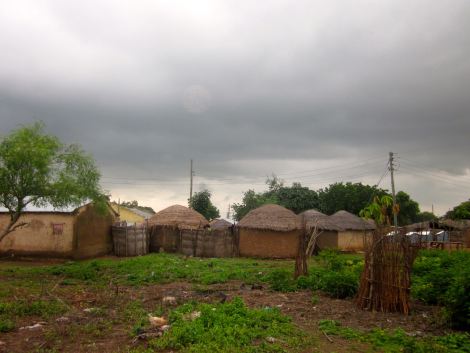 Kukuo camp has an estimated population of 113 inmates (the term used for women in the camps) occupying 86 households. The camp may provide refuge from violence to the women, but they struggle with daily life and are exposed to dangers that can hurt them. For example, in the dry season, the women must walk many kilometers from the Kukuo camp to retrieve water from the Oti River. Along this walk, they can encounter venomous snakes and there are large rocks where they can slip and fall. Because many of the women are elderly this is an arduous journey.
Kukuo camp has an estimated population of 113 inmates (the term used for women in the camps) occupying 86 households. The camp may provide refuge from violence to the women, but they struggle with daily life and are exposed to dangers that can hurt them. For example, in the dry season, the women must walk many kilometers from the Kukuo camp to retrieve water from the Oti River. Along this walk, they can encounter venomous snakes and there are large rocks where they can slip and fall. Because many of the women are elderly this is an arduous journey.
Why Kukuo?
Oral tradition has it that a hunter was the first person who discovered the Kukuo territories and started farming there. He was joined by other people from different places who came as settlers. Farming occurred in the rainy season and then shifted to hunting in the dry season. The first settler in Kukuo was believed to be a traditional scholar with immense knowledge and experience. He was also known as a healer. Due to his charismatic behavior, he developed a large following. The people had a strong belief that his healings and spiritual power was as a result of some items in the hut he was living in. No one from outside the community was allowed to view the inside of his home that was made up of thatched grass that had been woven around some logs and pieces of wood. After he died the people in the community converted his home into a spiritual shrine. It is because of this shrine that Kukuo is a safe place for women accused of witchcraft.
Exorcism at the Shrine
Before an accused person is permitted to have a final residence at the camp she has to be taken to the shrine to be exorcised of her witchcraft and to pacify the gods. The accused person comes to the camp’s shrine with a friend or family member. This is usually someone from the accused person’s village to witness whether the accused person is guilty or not. The witness is important because when they return to the village they’ll assure the community that the accused person completed the exorcism.
Both the witness and the accused person come with a fowl to be slaughtered as part of the ritual trial. The neck of the chicken is cut and the animal is tossed onto the floor. It haphazardly flops around until it comes to its final position. The position of the chicken determines the guilt or innocence of the woman. If it finally lies on its chest or face down, it means the accused person is really a witch but if it lies on its back the accused person is innocent. All inmates at the camps go through these rituals before they are allowed to enter the camp.
How is Someone Accused?
The inmates in the witch camp have suffered severe brutality and beatings along with the stigmatization from the community of which they were banished for bewitching. Bewitching is the act of using supernatural powers to kill a person. This is believed to be done by someone turning into a spiritual animal and biting another person in the bush, causing an accident through evil spirits, causing a plague in a community, or even sending an evil spirit to shock another person.
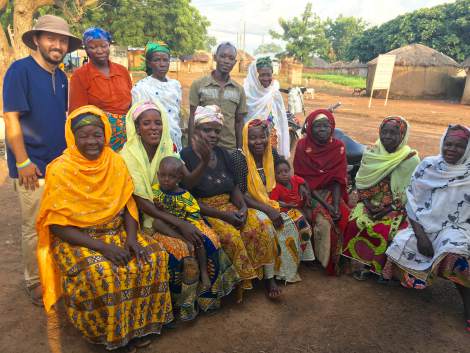 It is also believed that a wife can cause barrenness by bewitching a man to prevent him having an erection during sexual intercourse. Polygamous marriage is common in the Northern Region and many times these accusations come from one of the other wives.
It is also believed that a wife can cause barrenness by bewitching a man to prevent him having an erection during sexual intercourse. Polygamous marriage is common in the Northern Region and many times these accusations come from one of the other wives.
A number of the alleged witches had successful businesses in their village and are hard working people. The accusations may come from a business competitor in the community.
Women accused of witchcraft are often vulnerable. They are often illiterate, have no formal education, and are not aware of Ghana’s Domestic Violence And Victim Support Unit (DOVVSU). Being unaware of their rights, accused persons prefer to confess to witchcraft to avoid being lynched by the angry youth who usually take the law into their own hands. If the women can escape the beatings and possible hanging, the last resort is the witch camp. The women strongly believe there won’t be any form of torture against them in the camps.
Righting the Wrongs
To combat the allegations and the violations human rights and gender discrimination I work with a team of people at HA: Ghana’s partner organization, Songtaba, who work to mediate the return of women to their home villages and stopping the allegations altogether. Reintegration involves arranging acceptable terms for their return between the Chief of the village and the family of the accused. Acceptable terms include arranging for Songtaba to fund the housing in the village of reintegration for the woman as well as livelihood options upon her return to the village. If these are provided the Chief and family members will allow the woman to return home in many cases.
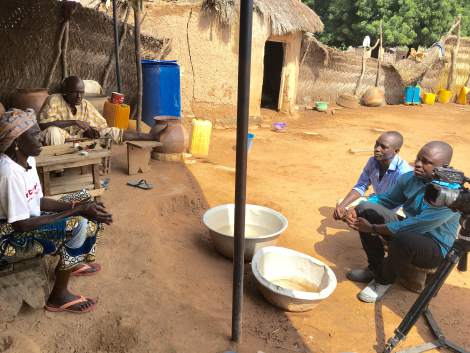 Songtaba has laid down principles and processes to curb the allegations that are a result of cultural influences, lack of health education, and science-based medicine in the northern part of Ghana. We have to continue these efforts or accusations will continue.
Songtaba has laid down principles and processes to curb the allegations that are a result of cultural influences, lack of health education, and science-based medicine in the northern part of Ghana. We have to continue these efforts or accusations will continue.
I dream of a day where these allegations no longer occur and the rights of the women are no longer violated. Until that time, I will work tirelessly to help the women of my country. This is a problem that is multigenerational and will take generations to solve. We have to start somewhere and the work we are doing here is vital to see the end of witchcraft accusations in Ghana.
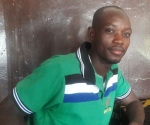 Alhassan Baako is a Northern Ghanaian activist for women’s rights and science-based medicine. After graduating from the University for Development Studies in Tamale, Baako taught Business and Technology at the School of Management Studies. In 2013, Baako began assisting Leo Igwe with translation, data collection, and historical/cultural guidance for Igwe’s doctoral research into Ghanaian witch-hunting. Since then, Baako has become a staunch advocate for victims of witchcraft accusations. He continues to help Leo Igwe as Igwe’s doctoral research draws to a close, but Baako became interested in the Humanist Action: Ghana as a way to directly restore dignity to banished women and stop witchcraft accusations altogether.
Alhassan Baako is a Northern Ghanaian activist for women’s rights and science-based medicine. After graduating from the University for Development Studies in Tamale, Baako taught Business and Technology at the School of Management Studies. In 2013, Baako began assisting Leo Igwe with translation, data collection, and historical/cultural guidance for Igwe’s doctoral research into Ghanaian witch-hunting. Since then, Baako has become a staunch advocate for victims of witchcraft accusations. He continues to help Leo Igwe as Igwe’s doctoral research draws to a close, but Baako became interested in the Humanist Action: Ghana as a way to directly restore dignity to banished women and stop witchcraft accusations altogether.

